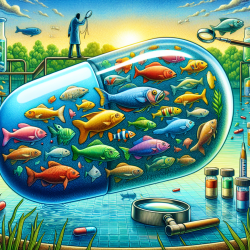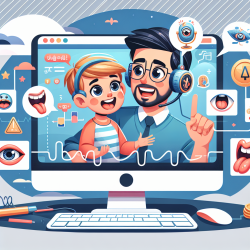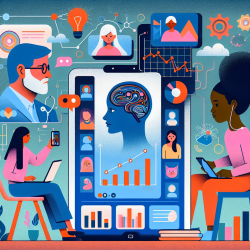As a practitioner in the field of therapy or education, you may not immediately see the connection between aquatic wildlife and your daily work. However, recent research highlights a critical intersection between environmental science and human health that demands our attention. The study titled "Impacts of Psychopharmaceuticals on the Neurodevelopment of Aquatic Wildlife: A Call for Increased Knowledge Exchange across Disciplines to Highlight Implications for Human Health" sheds light on an alarming issue: the presence of psychopharmaceuticals in our waterways and their potential impact on both wildlife and humans.
The Problem: Pharmaceuticals in Water
The global use of psychopharmaceuticals, such as antidepressants, has been on the rise. While these medications are crucial for treating mental health conditions, their environmental consequences are often overlooked. Pharmaceuticals enter our waterways primarily through excretion and improper disposal, leading to contamination that affects aquatic life. Studies show that these substances can cause significant physiological and behavioral changes in fish and other aquatic organisms.
Why This Matters to You
You might wonder why this issue is relevant to your practice. The answer lies in the potential implications for human health. The same psychopharmaceuticals affecting fish could also impact humans through unintentional exposure via drinking water. This exposure could contribute to neurodevelopmental disorders, particularly in vulnerable populations such as children and pregnant women.
The Knowledge Gap
The research highlights a significant gap in knowledge exchange between environmental scientists and medical professionals. Despite clear evidence of pharmaceutical contamination's effects on wildlife, this information is not being effectively communicated to those in fields like pediatrics, obstetrics, and psychiatry. This lack of interdisciplinary communication hinders our ability to fully understand and address the potential risks to human health.
Steps You Can Take
- Stay Informed: Keep up with emerging research on environmental health issues that may affect your field.
- Advocate for Change: Support policies that promote better regulation of pharmaceuticals in water systems.
- Encourage Collaboration: Foster interdisciplinary partnerships to bridge the knowledge gap between environmental science and healthcare.
- Pursue Further Research: Consider how this issue might intersect with your work and explore opportunities for research or collaboration.
A Call for Action
This research serves as a call to action for practitioners across disciplines. By increasing awareness and communication about the environmental impacts of pharmaceuticals, we can better protect both wildlife and human health. It's time to break down silos and work together towards a more comprehensive understanding of these complex issues.










